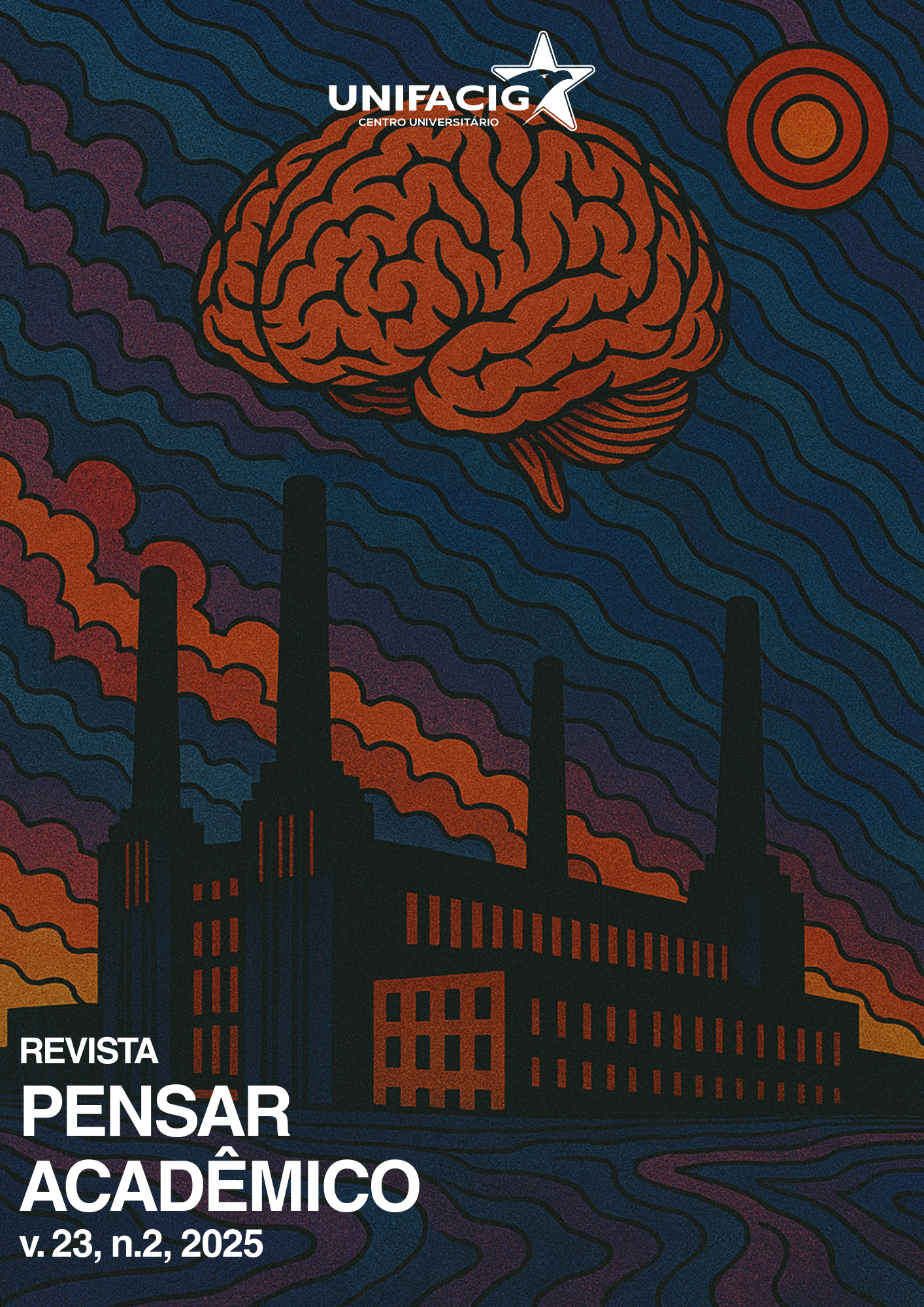RITMO CIRCADIANO E QUALIDADE DO SONO EM ACADÊMICOS
DOI:
https://doi.org/10.21576/pensaracadmico.2025v23i2.4462Abstract
Circadian rhythm is the name given to the cycle that regulates the daily behavior of living beings, wich is influenced by factors such as light, food and stress. Within the human body, hormones such as melatonin and cortisol play a crucial role in this process, regulating sleep, awakening and metabolism. Melatonin, for example, facilitates sleep during the night, while cortisol acts on awakening and the response to stress. For college students, imbalances in the circadian rhythm are not uncommon and often impair the quality of sleep, resulting in daytime sleepiness and irregular sleep patterns, which directly affect their academic performance. In this context, factors such as the use of substances (such as caffeine, alcohol and drugs) and exposure to technology before bedtime compromise the circadian cycle even further. In addition, stress and problems related to academic life can aggravate sleep disorders, resulting in conditions such as burnout syndrome and depression, which impair cognition and learning. Studies suggest that interventions such as cognitive behavioral therapy for insomnia, sleep hygiene, and physical exercise can improve the quality of sleep in college students. Such interventions, combined with behavioral adjustments such as regulating light exposure and promoting sleep health education, are essential to balancing the circadian rhythm and optimizing academic performance. Therefore, implementing effective strategies is essential to improving sleep health and the well-being of students in higher education.
Downloads
Published
Issue
Section
License
Copyright (c) 2025 Pensar Acadêmico

This work is licensed under a Creative Commons Attribution-ShareAlike 4.0 International License.
Autores que publicam na Revista Pensar Acadêmico concordam com os seguintes termos:- Autores mantém os direitos autorais e concedem à revista o direito de primeira publicação, com o trabalho licenciado simultaneamente sob uma Licença Creative Commons Attribution por 2 anos após a publicação, permitindo o compartilhamento do trabalho com reconhecimento da autoria do trabalho e publicação inicial nesta revista.
- Autores têm autorização para assumir contratos adicionais separadamente, para distribuição não-exclusiva da versão do trabalho publicada nesta revista (ex.: publicar em repositório institucional ou como capítulo de livro), com reconhecimento de autoria e publicação inicial nesta revista.
- Autores têm permissão e são estimulados a publicar e distribuir seu trabalho online (ex.: em repositórios institucionais ou na sua página pessoal), já que isso pode gerar alterações produtivas, bem como aumentar o impacto e a citação do trabalho publicado (Veja O Efeito do Acesso Livre).

